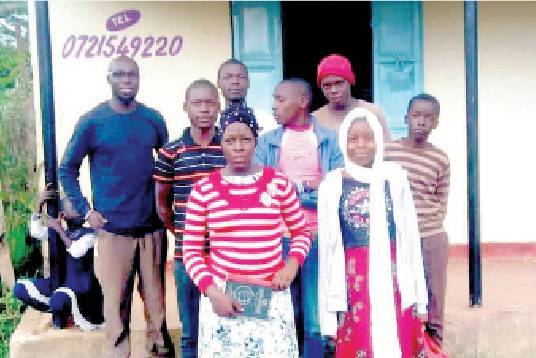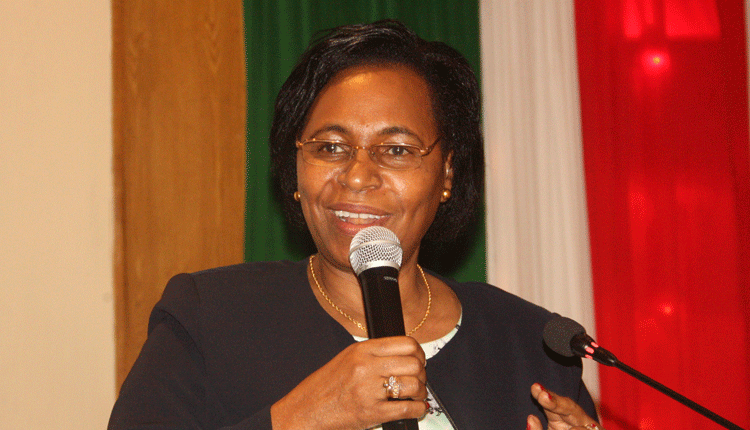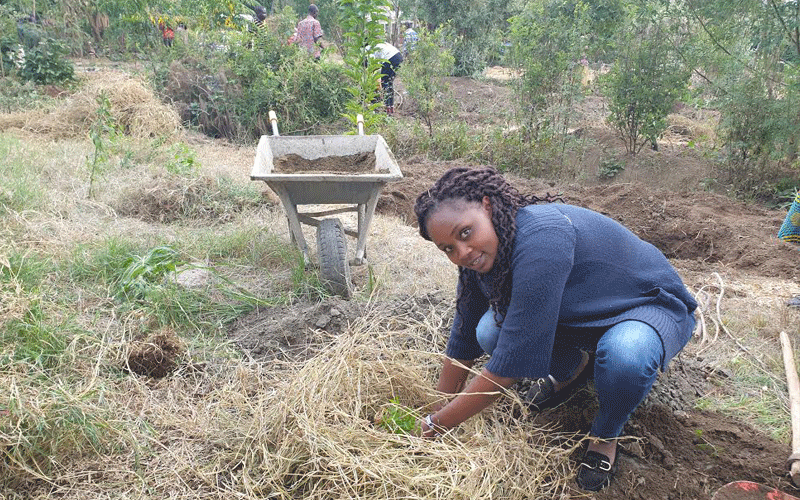Victim of war embarks on peace, unity mission

Wycliff Kipsang
The mention of Sabaot Land Defence Forces (SLDF) sends cold chills down the spines of residents of Mt Elgon constituency in Bungoma county.
Militia-like group, which was led by Wycliffe Matakwei (who was later shot dead) killed several people and led to the displacement of more than 60,000 others between 2006 and 2008.
Though calm has been restored in the region, the scars are evidently visible with many families still mourning their loved ones.
One man who witnessed the skirmishes while growing up has embarked on a mission to unite warring clans from Sabaot community.
Majority of the conflicts, including the SLDF one have been attributed to land feuds among clans in the vast region.
Abdulaziz Taraja has taken it upon himself to bring his people to a negotiating table and end violent confrontations.
Substance abuse
Taraja has founded the Elgon Centre for Education, a Non-Governmental Organisation to solely promote peace and access to education in the expansive region.
“The organisation also aims at mitigating impacts of alcohol and other substance abuse. We also empower people to embrace dialogue when solving conflicts including those touching on land,” Taraja told People Daily.
“I experienced a lot of land and war related issues while growing up. This is what I want to change. I grew up in a society where people have, over the years, been fighting over land,” he added.
Hia family was among the 60,000 who lost homes and property during the height of the violence.
“Seeing my childhood friends drop out of school to join militia has been the lowest moment in my life,” said Taraja.
“I am convinced that land must not be a life and death phenomenon despite it being a factor of production. Education can liberate the young generation to think and act far from the deadly land,”he added.
Since 2017, his organisation has reached out to more than 20,000 people in what he terms ‘as Structured Integrated Academic Mentorship programme’ consisting of parents, teachers and largely students.
“My work keeps inspiring young and old. The community is receptive and they have started embracing dialogue in conflict resolution which is a big inspiration to me,” said Taraja.
He says his dream is to see an education system that is not anchored and judged by grades but access to inclusive education for all.
“In five years, I am looking at a community and country that any dropouts due to different circumstances are given a second and even third chance to pursue their dreams regardless of their grades and performance. Life is totally different from grades we get in the 21st Century,” said Taraja.
He emphasised the need for the government to set up technical and vocational institutions to cater for students who do not make it to the university.
“Going to university is not everything. A student can enroll to pursue a course that will give him or her necessary skills to reinvent and hire rather than going to university and wandering for employment for a decade,” said Taraja.
Taraja sat his first Kenya Certificate of Secondary Education in 2001 and repeated in 2002 at Chepkurkur Primary School.
Necessary skills
“When I could not proceed to high school due to simmering poverty in our home, I decided to stay at home in 2003 and in 2004,” said Taraja.
“Fearing that I risked joining militia groups,I decided to go back to Class Eight at Banantega Primary School to sit for my third KCPE in 2005, scoring 358 marks but couldn’t proceed to secondary school yet again due to lack of school fees,” Taraja said.
He gave it another try in 2006 at Cheptais Elite hoping to score 400 marks and above to secure a scholarship.
His resilience finally paid off as he managed to score 404 marks and was admitted to Nairobi School with a Scholarship from Masomo Foundation. He later proceeded to the University of Kabianga in Kericho to pursue Communication and Public Relations with huge passion in media.
At the university, he served as the Editor-in-Chief and Communications Director in the Student Governing Council.
“But all in all, I regard my community interaction through education as the most fulfilling job I have. My tagline is JIAMINI, a name that is now synonymous with me and has become a brand,” said Taraja.










